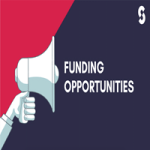
Deadline Date: April 30, 2025
Donor Name: Micronutrient Data Innovation Alliance
Grant Size: $10,000 to $100,000
Category: Grant
Reference URL:https://micronutrientforum.org/request-for-proposals-dina-2025-small-grants-program/
Copy Url
The Micronutrient Data Innovation Alliance (DInA) has launched its second Small Grants Program, inviting eligible organizations in low- and middle-income countries to apply for grants focused on large-scale food fortification (LSFF) data.
While LSFF has a long track record of success, significant data gaps still hinder effective program design, implementation, and scale-up. Through this initiative, DInA aims to generate new evidence that strengthens LSFF programming, improves policy decision-making, and ensures fortified foods reach the most vulnerable populations.
DInA strongly encourages proposals from National Fortification Alliances (NFAs) or organizations working in close collaboration with NFAs, given their central role in coordinating LSFF efforts at national and regional levels. Successful proposals will focus on improving LSFF data ecosystems, including evaluating coverage and compliance metrics, analyzing existing data for policy insights, and strengthening regional collaboration.
Focus
- The 2025 Small Grants Program will focus on country-led efforts to strengthen the large-scale food fortification (LSFF) data ecosystem. LSFF is a proven, cost-effective intervention to improve micronutrient intake and address micronutrient deficiencies as part of a broader food systems strategy to improve poor diets. LSFF has a proven track record of success over the past several decades:
- 147 countries have mandatory or voluntary salt iodization programs, eliminating iodine deficiency and goitre in much of the world.
- 94 countries have legislation that mandates fortification of at least one industrially milled cereal grain.
- More than 30 countries fortify edible oil.
Funding Information
- Grants of up to $15,000 USD
Eligibility Criteria
- To qualify, applicants must:
- Live and work in a low- and middle-income country (as classified by the World Bank)
- Be a member of DInA.
- Represent an organization or stakeholder group (e.g., government, academia, non-profit etc.)
- Commit to working on an LSFF policy-related topic.
Evaluation Criteria
- Proposals will be reviewed for eligibility, clarity, and completeness. Successful applicants must present a well thought out plan to improve the LSFF data ecosystem in a country or regional context. Priority will be given to projects that:
- Support country commitments to LSFF data.
- Evaluate LSFF consumption and compliance metrics.
- Analyze LSFF program data and translate findings into policy-relevant insights.
- Facilitate regional collaboration to generate and share more LSFF data to influence policy decisions.
- Have a high likelihood of downstream actions to support national decision making regarding LSFF programs.
- Encourage collaboration among key stakeholder groups.
- Would not be possible without this funding.